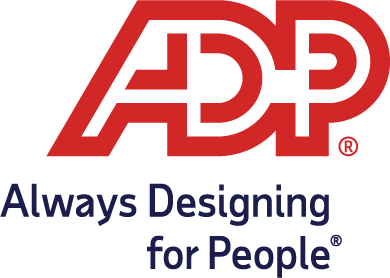Ways to Manage
Your Paycheck
Ways to Manage
Your paycheck
Ways to Manage Your Paycheck
The following sections provide ways to manage your paycheck more effectively:
Taxes: Knowledge is Power
Always pay attention to new tax laws. They are like a moving target—changing yearly. Recent tax changes are supposed to put more money in the pockets of American taxpayers. However, if you don’t have enough taxes withheld, you may be in for an unpleasant shock at tax time.
On the other hand, if you received a large refund last year, you may have had too much money withheld at work, in effect giving Uncle Sam an interest-free loan at your expense. To test your W-4 results and withholding levels, use the IRS Form W-4 Calculator.
Be Smart About Your 401(k)
Many workers do not take full advantage of, or effectively manage, this benefit offered by their employer. For the past 40 years, Section 401(k) of the Internal Revenue Code has authorized employers to create tax-deferred savings plans for their employees to help supplement Social Security.
It’s your responsibility to pay attention to how your contributions are allocated to ensure your nest egg is appropriately diversified for your stage of life. Also, find out if your company gives a percentage match to your 401(k) contributions. If it does, and you are not contributing the maximum amount that your employer matches, you are giving up “free money.”
Manage Medical Costs
It’s important to plan in advance for expected and unexpected medical costs. Some employer-sponsored insurance plans allow your medical, dental, and vision insurance premiums to be deducted from your paycheck before taxes are taken out. These Health Care Flexible Spending Accounts also allow you to set up other accounts that help you save tax dollars on your planned out-of-pocket medical/dental care costs.
With healthcare costs on the rise, this is a great way to save tax dollars. Check with your benefits administrator to find out if this or any other health care savings programs are available to you.
Dependent Care Costs
Some employers offer Dependent Care Flexible Spending Accounts to help pay for costs for dependent care, including child or day care.
If your dependent care costs are deducted from your pre-tax paycheck, you could save money in more ways than one. While saving for your child’s care today, you could save tax dollars tomorrow.
Ease the Cost of Your Commute
Your employer might offer transportation or commuting benefits and you might be able to pay for all or a portion of your commuting expenses tax free. You don’t have to pay Federal and FICA taxes on commuting-related parking or transit expenses if you have money deducted from your paycheck before taxes are calculated.
Depending on your employer’s plan, the benefits can help pay for transit passes or parking. Ask your employer for details.
College Savings Plans
With college costs rising at more than twice the rate of inflation, it’s smart to plan ahead for future expenses. A 529 plan is among the very best ideas, with two options: prepaid tuition plans and college savings plans.
A prepaid tuition plan allows you to pay for future tuition and certain fees at today’s prices. College savings plans allow you to invest funds specifically for higher education and rely on compound earnings to help you reach your goal. The funds in a college savings plan can be used for room and board as well as tuition and fees. Funds in a 529 plan may also be used at trade schools and vocational schools.
As the account owner, you can change the beneficiary from one family member to another, or even to yourself.
Strategic Savings at Work
Although we intend to, many Americans save less than 5% of their annual income. While you may enjoy receiving a tax refund each spring your tax refund may actually be costing you money. By updating your withholding amounts on your Form W-4 you may be able to reduce the amount of taxes withheld from your paycheck. You can give yourself an instant raise. To test your W-4 results, use the IRS Form W-4 Calculator.
Direct deposit also offers an easy way to manage your paycheck deductions and to save for a rainy day. Put your payroll department to work for you by having them split your check into separate deposits for different accounts. For instance, you could setup an account just for savings, another account for your vacation funds, or have them deposit a set amount directly into a 529 account. Setting up separate allotments to both your checking and savings accounts, you are more likely to live within your budget while still ensuring that a portion of your paycheck is automatically added to your savings. Making small but well-planned adjustments, such as this, can help you reach your financial goals for the future.
There is a wealth of information available on how to make your paychecks pay out even more. Free resources can provide you with the information you need to more efficiently and effectively manage your income, utilize your employee benefits, and save for college and retirement.



